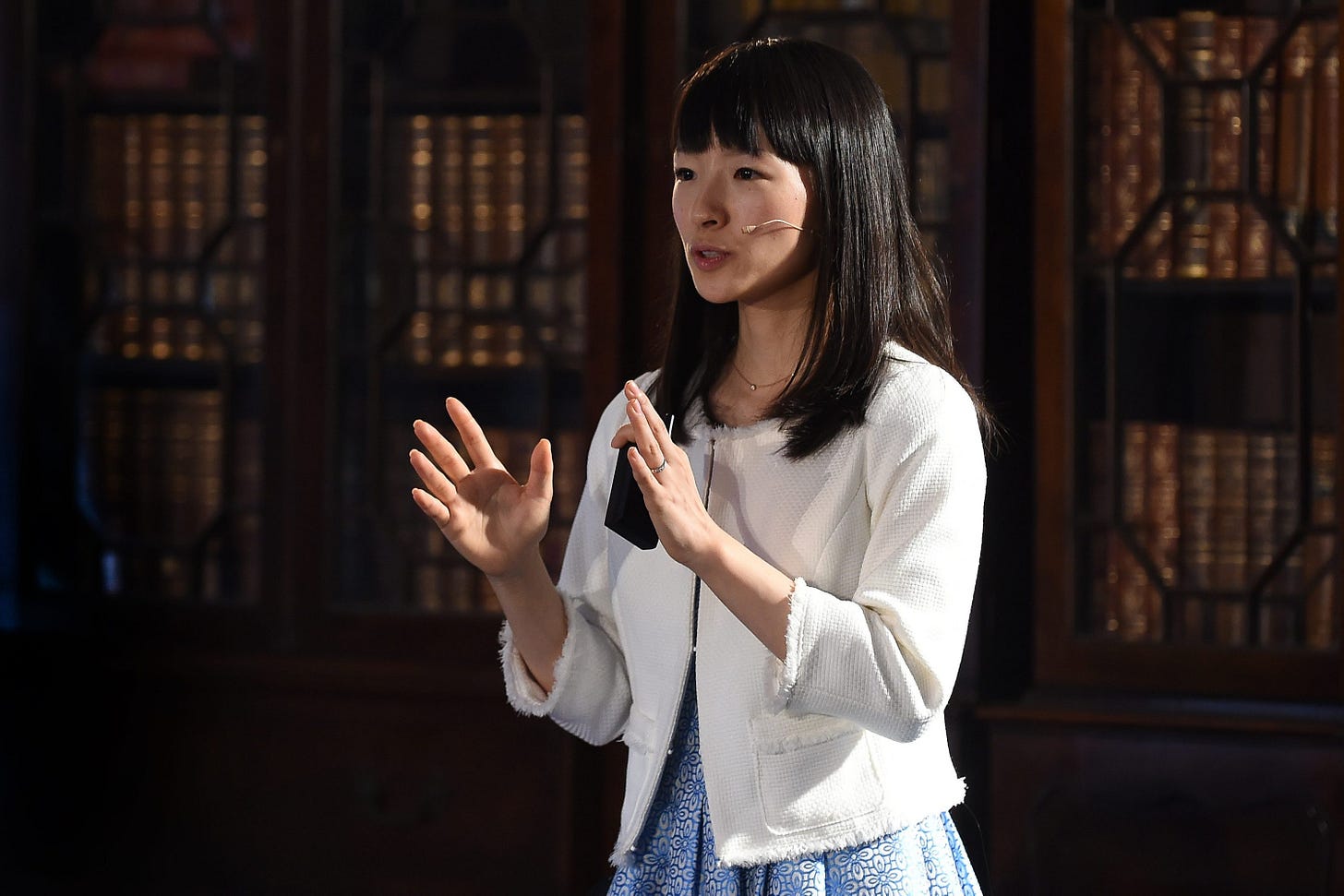The Marie Kondo Effect / Christina Rolston

Finding the right Netflix series to sink your teeth into can be quite the process. It takes some searching to discover that perfect season which entices you to watch one episode followed by one more, and then one more. Conveniently, Netflix only allows you a few seconds to decide if you’ll watch another one before it plays automatically.
Well, I found just such a series: “Tidying up with Marie Kondo”. For most it’s not the most thrilling or exciting watch, but for me I was on the edge of my seat: the organising, the cleaning, the minimising, and the decluttering. Truly satisfying.
“Tidying Up with Marie Kondo” highlights what we already know: we live very busy, hectic lives. The families and individuals that Marie visits have experienced a significant event in their life that sparked the hoarding and clutter: loss of a loved one, kids left home, or simply a young busy family. Marie’s role is to help these people transition from one stage of life to another through tidying, organising, getting rid of the clutter, and showing them how to find joy again.
Here I am on the edge of my seat fascinated by Marie’s process and amazed by the transformations. However, I paused and realised that these transformations came at a cost—is that cost worth it? Take one couple for example: in their decluttering process, they threw out 200 bags of rubbish! 200!! So, is the Marie Kondo effect a good thing?
What the show doesn’t show you is where those rubbish bags end up. Often those piles of things/clothes are ending up at various charity shops or even dumped beside overflowing donation bins. Op shops usually welcome unwanted quality items, but many have had to resort to reminding people they are not a substitute for a bin. Our op shops are typically run by volunteers who spend a great amount of time trawling through the overload because of the sudden Marie Kondo craze. Our Australian neighbours have discovered that those who are ignoring those signs and dumping their unwanted goods are costing Australian charities $13mil a year to send unusable donations to landfill.
Our Western culture is so fixated on consumption, filling voids, and getting the next best thing. Do we stop and think about the wider effect of our actions? Our millennial generation for example, is a generation that is not about owning stuff but more about experience. This generation has caused a great shift and disrupted tradition by favouring public transport, sharing cars as opposed to buying, and renting an apartment rather than buying a house in the suburbs. We are reshaping consumer behaviors by gaining purchasing power. With this purchasing power, millennials are more likely to purchase second hand—one in three in fact—which has meant more people in every demographic are buying second hand. In the US, sales of pre-owned clothes are growing 22 times faster than sales of new clothes, and in the UK particularly in 2017, 11,000 charities saved 330,000 tons of textiles from going into the landfills.
All in all, Marie Kondo’s method is credible. Not only is she teaching people to let go and reduce consumerism, but to find joy in other ways. She highlights key teachings of spending more time with family and friends and experiencing life to its fullest. There’s one catch: if you are thinking about decluttering, think about the items you are getting rid of and whether they are worthy of being donated. Items with stains or broken items—will they spark joy for someone else? Keep in mind the concept of giving a gift or giving with love. Jackie Clark, the Head Aunty of the charity The Aunties sums it up well… “When you are getting rid of old tat, what you’re saying is: I don’t care who’s getting this, as long as I don’t have to deal with it anymore. I understand that impulse, but on the other end of that, is another human being who needs whatever it is you may have, and what they feel when they get old tat is not something any of us want to feel. They feel more worthless than they already do, they feel unseen, and they feel like nobody cares about them.” If you’re decluttering and organising, remember the consequences of your actions and decisions. But more importantly, give with love and give with consideration.
- Christina Rolston



